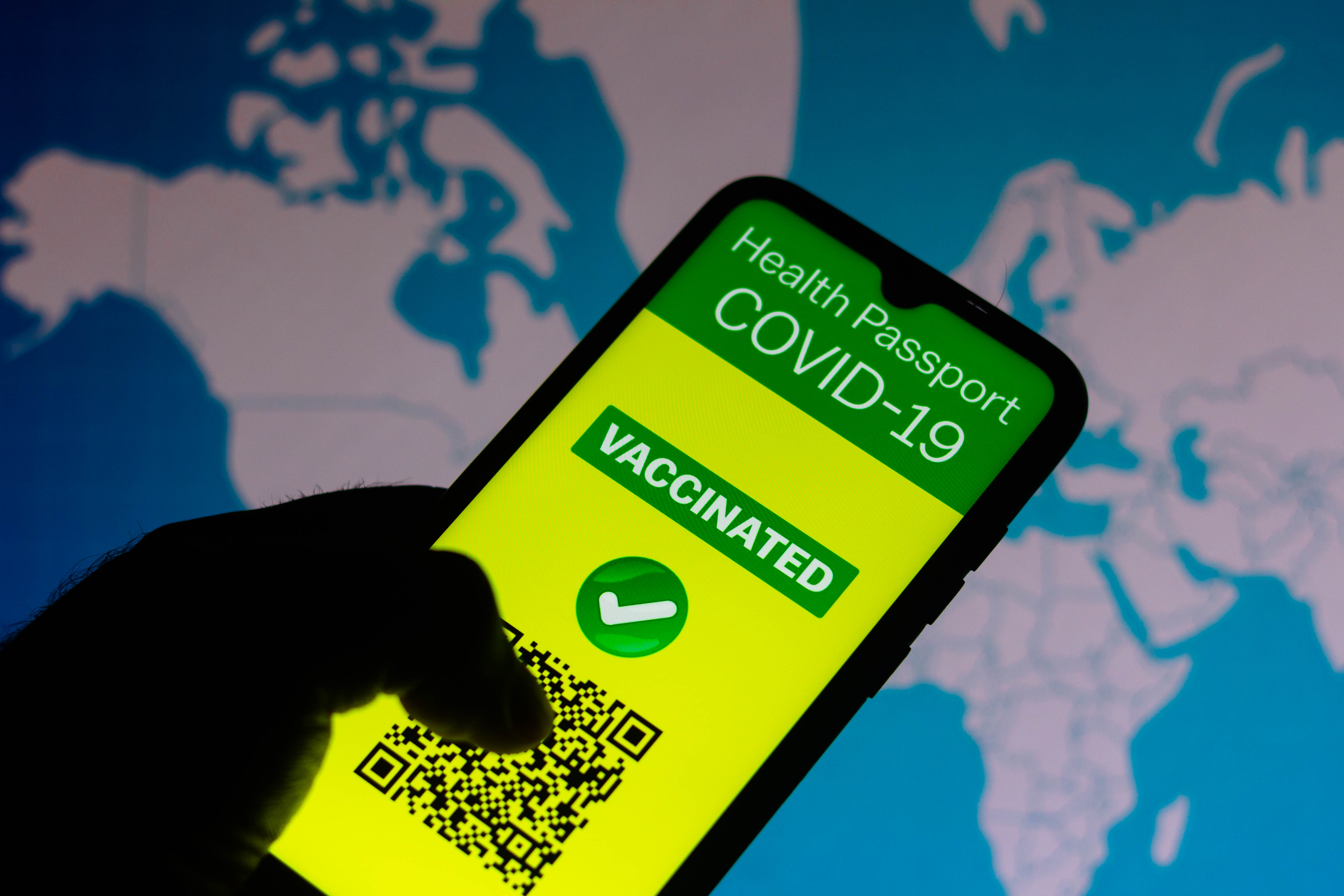
Around the world, governments are rushing to develop so-called “vaccine passports.” The state of New York, the United Kingdom, and the European Union have all announced initiatives aimed at enabling people with proof of vaccination to engage in some activities that had been prohibited by COVID-19 restrictions. While each initiative has its idiosyncrasies, they are generally attempts to certify that a person has been vaccinated for COVID, through a range of objects broadly referred to as “passports.” This can be as simple as a paper record but typically refers to an electronic record that can be used to verify that a person received a vaccine.
But in the rush to roll out passports and allow their citizens to return to some semblance of pre-pandemic life, governments are failing to establish how to govern systems to verify vaccination status and how to resolve the disputes that will inevitably arise from them. Rather than focusing on technical methods for verifying vaccination status, governments should be working to establish clear guidance on how vaccine status information can and can’t be used in the first place; who can compel its disclosure; under what conditions it can be used to restrict a persons’ rights; and how to resolve conflicts over its use.
Without well-defined policies on how public institutions will allow vaccination to affect access to services and resources, clear articulations of private discretion to use vaccination status to impact peoples’ fundamental rights, and a system for resolving disputes arising out of abuse of these systems, few people will have confidence or trust in the equity of the system. Without clarity on our rights, or how we can enforce them when they’re violated, it’s hard for the public to have anything other than concern about digital systems used to verify immunization.
It remains unclear how vaccine passports will be deployed and access to which services will be conditioned on their use. Calling them “passports” only contributes further to this confusion. Despite the “passport” moniker, there are a number of differences between requiring disclosure of vaccine status in order to travel internationally and requiring them to go to the grocery store. Not only is international travel well-regulated with significant public and private oversight, but there are also clear boundaries on the discretion afforded to the actors that regulate travel. By contrast, allowing a business to make its own decision about whether to require vaccine passports ensures that it will do so and that violence will ensue in subsequent confrontations over their use.
Unfortunately, it is cheaper for powerful institutions to force those they govern to adopt an ineffective, or even dangerous, technology than it is to grapple with meaningfully addressing health risks. As in the decision to roll out contact-tracing apps despite little evidence of their meaningful impact, the public pressure to do something and roll out vaccine passports is outweighing scientifically rigorous scrutiny of these systems. Once public institutions started focusing on the potential of digital contact-tracing apps, employers, educators, and a range of public authorities began encouraging or requiring their use. The same pattern is likely to ensue with vaccine passports.
As vaccine passport apps are rolled out, they are likely to have major impacts on fundamental rights, with little opportunity for accountability. The principal scenarios in which their designers are envisioning vaccine passport apps will be used are for travel, access to workplaces, or public locations. And as they are used to restrict individuals’ movement and access to work, vaccine passports become yet another opportunity for impunity, with potentially violent consequences. Around the world, the enforcement of COVID-related restrictions have been accompanied by violence, as in Kenya and India.
Vaccine passports become one more opportunity for impunity and inequity in the world’s response to COVID-19. Given unequal access to vaccines, the World Health Organization has urged governments not to roll out vaccine passport technology, as they are likely to further entrench the global divides created by access to the vaccine. But democratic governments are nonetheless moving forward with vaccine verification schemes, which is likely to legitimize their use by private actors and non-democratic states. When an excuse for the exercise of impunity becomes openly and publicly acknowledged as legitimate for private use by governments, as vaccine passports have, it justifies that same impunity by anyone with power over people or a physical space. The threat of giving those with authority another power over those without it, knowing how rare it is for those affected to seek justice, should be a cause for deep skepticism about the wisdom of conditioning access to fundamental rights, such as work and movement, on vaccination status.
Rather than focusing on tools for verifying vaccination status, governments would be better served writing clear rules regarding when and how such information can be used in the first place and how to resolve disputes regarding its use. As a public health measure, vaccine passports aren’t really meant to protect the unvaccinated, so much as reduce the restrictions on those who are. For those who live in places where the vaccine is plentiful and access is easy, vaccination status may become a matter of personal choice, but for most of the world, access is months if not years away. And impunity is a very familiar problem.
Sean McDonald is the co-founder of Digital Public and a senior fellow at the Centre for International Governance Innovation.
"impact" - Google News
April 16, 2021 at 11:31PM
https://ift.tt/3aiciie
Impunity passports: Governing immunity's impact on rights - Brookings Institution
"impact" - Google News
https://ift.tt/2RIFll8
Shoes Man Tutorial
Pos News Update
Meme Update
Korean Entertainment News
Japan News Update
Bagikan Berita Ini















0 Response to "Impunity passports: Governing immunity's impact on rights - Brookings Institution"
Post a Comment